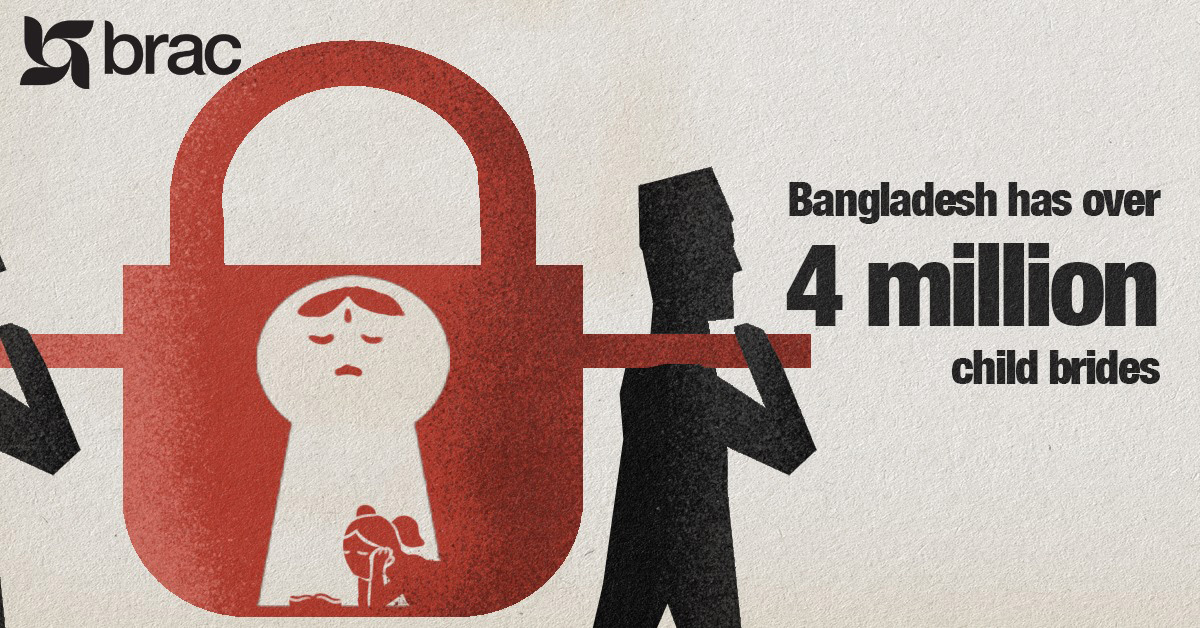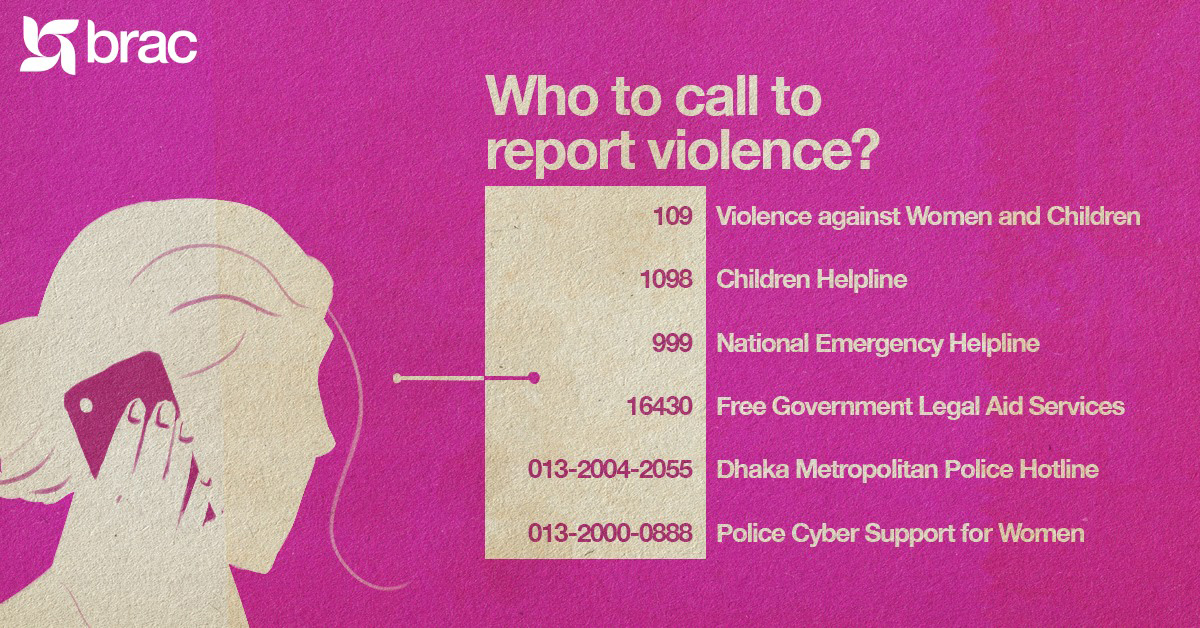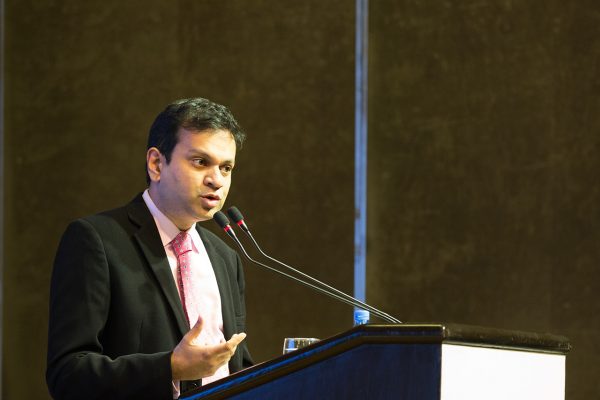30 ways BRAC prevents violence against women and children in Bangladesh
Reading Time: 4 minutes
Violence against women and children is rising. Child marriage is rising. Child brides are at even higher risk of violence, putting girls across the world in danger. As the 16 days of activism against gender-based violence close for 2019, let all us pledge to build a better world for girls and women. Here is a snapshot of what BRAC is doing.
Reporting crime is arduous and unpredictable for many Bangladeshis, due to stigma, lengthy processes and backlogs. The COVID-19 lockdown made it even more difficult, yet, a 24% increase in cases of violence against women was recorded by BRAC Community Empowerment Programme in 2020.
30,842 incidents of violence against women were reported to BRAC’s legal aid clinics in 2019, from January to September. Even with restricted mobility caused by the lockdown, limited operating hours and services, 25,607 cases of violence against women were filed at BRAC’s legal aid clinics from January to September this year. Members of BRAC’s polli shomaj (community-driven committees) prevented 530 child marriages between July-September this year. This is a 219% increase compared to the same period in 2019.

Polli shomaj works at the ward levels, and serves as a forum through which women raise their voices and claim their rights. Currently more than 12,800 polli shomaj institutions are operating across Bangladesh, with almost a million women as members. From 2019 until November 2020, these committees prevented 165,313 incidents of violence. Among them, 1,575 were child marriages.
Legal access in Bangladesh is time consuming and can be costly. It is thus particularly challenging for women and children survivors of violence to seek legal support. BRAC Human Rights and Legal Aid Services supports survivors of violence through legal advice, legal counselling, alternative dispute resolution (ADR), and support in court cases. This support was provided remotely during the COVID-19 lockdown in Bangladesh, from 29 March-30 July 2020.
A total of 25,607 complaints of gender-based violence were received by BRAC’s 410 legal aid clinics across Bangladesh between January and October 2020. Of these complaints, 15,047 were resolved through alternative dispute resolution under dower and maintenance, guardianship, divorce and restitution of conjugal life, and civil cases (land, money and others). Legal counsel was provided to 3,239 survivors, and 1,724 complaints led to civil and criminal cases being filed. In addition, USD 4 million in dower and maintenance was recovered for survivors.

Income-generating activities empower women. BRAC Microfinance programme provides basic financial literacy and awareness among women clients regarding violence against women and children, and encourages participants to take services from the government helpline number 109. More than 7 million women received financial literacy through 2,242 female customer service assistants between 2018-2019.
Half of the primary schools in Bangladesh have separate toilets for girls, and 1 in 4 adolescent girls miss school during menstruation. 58 water points and 110 separate toilets were constructed for girl students between 2019-2020 by BRAC Water, Sanitation and Hygiene programme. 7,645 school hygiene sessions were held in schools in 2019.
3.8 million people were reached with awareness messages on gender-based violence, through 16 community radios between June-August of 2020, led by BRAC Gender Justice and Diversity programme. 172 online training sessions were conducted between March to August 2020 to ensure that BRAC’s COVID-19 response was gender-sensitive.
Read more: 30 ways BRAC supports girl children
Girl children often discontinue education when they are married early, due to peer pressure from their in-laws and lack of time from added domestic responsibilities, such as household chores and raising children. 1.7 million girl students and women received services through the BRAC Education Programme in 2019, including 377,290 girl students being enrolled in BRAC schools. 6,776 girl students successfully passed the primary education completion examinations with a pass rate of 99.5% in 2019.
394,861 girl students are enrolled in BRAC schools in 2020 and 765,013 female members are engaged in BRAC’s adolescent centres and multi-purpose community learning centres. More than 6 million women were made aware about COVID-19 through posters, leaflets and meetings maintaining safe distances.
BRAC Urban Development programme works to improve women’s access to livelihood, skills and entrepreneurship development as well as access to basic services. Between 2019 and November 2020, 1,434 girls were supported with education, 348,256 women received primary healthcare, 300,000 women received hygiene kits and awareness, 111,963 women received seeds and saplings and 52,182 women-led households received food aid.

Across 17 Rohingya camps in Cox’s Bazar, BRAC Humanitarian Crisis and Management Programme is working on protection, sexual and gender-based violence, safety and security through community-based protection interventions, safeguarding and access to justice. 101,228 people were reached by community-led messaging on key gender-based violence risks and related mitigation measures. Women and girls accessed 17 safe spaces, 2 integrated community centres, 5 adolescent and youth centres and 5 community engagement centres, established and operated by BRAC. 616 (38%) intimate partner violence survivors received case management and structured psychosocial support.
Women migrants often return to Bangladesh having survived physical, mental and sexual violence. 1 million women and girls were sensitised on human trafficking in the name of labour migration, through BRAC Migration Programme. 1,998 women and girls received food, water, accommodation, transportation to their homes, and telecommunication support at the airport. 45,000 women and girls were brought under social reintegration through community sensitisation, arbitration support and referral services. 316 applications were written to the Wage Earners’ Welfare Board and Bureau of Manpower Employment and Training to help rescue women migrants abroad. 259 women and girls were rescued through these applications. 1,238,718 women and girls were made aware of safe migration and human trafficking through various community-based activities.

Child marriages often take place as a result of the economic condition of the girls’ families, and women tend to tolerate domestic violence because of a state of economic disempowerment. 24,766 women were enrolled in skills training through BRAC Skills Development Programme. 20,270 women were placed in decent jobs.
163,570 ultra-poor women received training on demerits of child marriage, dowry and other issues on social and gender-based violence between 2019-2020, through BRAC Ultra-Poor Graduation Programme. In hard-to-reach areas, 3,505 women attained positions in local power structures and 3,571 incidents of violence against women and 64 cases of child marriage were prevented by BRAC Integrated Development Programme between 2019-2020.
As the world rallies against gender-based violence during the 16 days of activism, let us all strengthen our commitment in building a world where it is not dangerous to be born as a girl.
Lina Dilruba Sharmin and Luba Khalili are communications specialists at BRAC. Sarah-Jane Saltmarsh is Head, Programme and Enterprise Communications BRAC.





